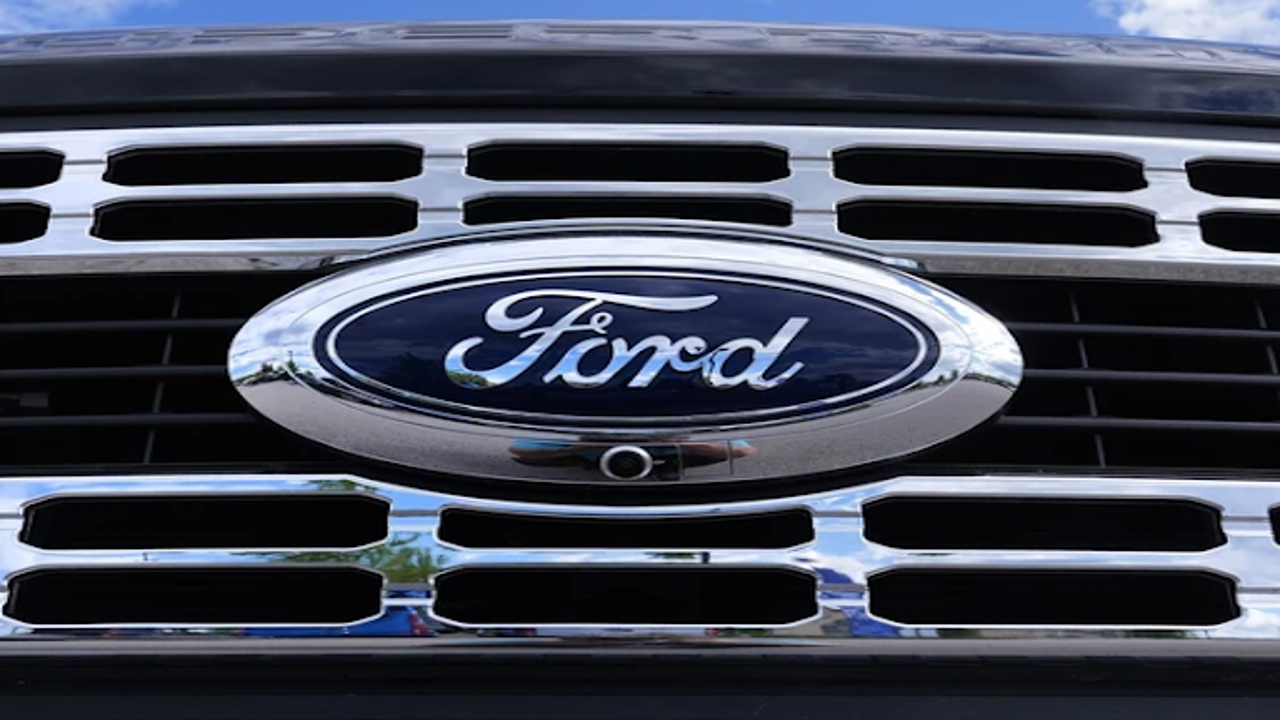
The Ford logo is shown on the grill of a pick-up truck on a dealership lot, on May 29, 2024, in Salem, N.H. Photo by THE CANADIAN PRESS/AP/Charles Krupa.
Ford Motor Co. is once again adjusting its electric vehicle strategy, announcing the cancellation of a planned fully electric SUV and shifting its focus to other areas. This change, which could cost the company approximately $1.9 billion, includes scrapping a previously delayed electric three-row SUV and postponing a new-generation electric pickup. Additionally, Ford plans to reduce its spending on electric vehicles (EVs) from around 40% to 30% of its annual capital budget and is revising its battery sourcing strategy to better compete with more affordable Chinese rivals.
This latest move marks a significant shift for Ford CEO Jim Farley, who had accelerated the company’s push towards electric vehicles when he took over nearly four years ago. The company faced substantial costs as it ramped up production amidst slowing industry sales growth, leading to an anticipated $5.5 billion loss in its EV unit this year.
Farley is now focusing on producing EVs that are competitively priced compared to traditional vehicles. This includes a battery-powered midsize pickup truck expected to debut in 2027, with hopes of turning a profit on these models within a year of their release. Farley expressed confidence in the revised strategy, stating, “This is a tremendous pivot for us, and we’re not going to make a tremendous pivot without doing a lot of homework to convince ourselves this is the exact right plan.”
Ford’s stock rose 2% in early New York trading after the announcement, although it had previously dropped 12% this year.
In response to the slowdown in EV demand, Ford is increasing production of gas-electric hybrid models, which have been more popular with consumers. Farley is particularly enthusiastic about extended-range electric vehicles (EREVs), which use a small gasoline engine to keep the battery charged and extend driving range. Ford is considering this technology for its next-generation SUVs but ultimately decided it couldn’t achieve profitability with a large all-electric SUV.
Due to the cancellation, Ford will take a $400 million non-cash charge related to the write-down of manufacturing assets. The Canadian plant initially set to produce the electric SUV will now focus on highly profitable gas-powered pickups. The company might also face up to $1.5 billion in additional costs related to these changes.
Despite halting the electric SUV project, Ford plans to introduce a new fully electric commercial van in Ohio by 2026, followed by two new pickups in 2027. One of these trucks will be a medium-size model based on a platform developed by a former Tesla engineering lead, while the other will be a next-generation truck built in Tennessee, albeit with a delay.
To improve the profitability of its EV business, Ford will increase its domestic battery production to qualify for tax credits under the Biden administration’s Inflation Reduction Act. The company is collaborating with LG Energy Solution to shift some battery production for its Mustang Mach-E electric SUVs to Michigan from Poland.
Ford is also preparing to start producing lower-cost lithium iron phosphate (LFP) batteries in Michigan by 2026. This plant is expected to be the first LFP cell facility in the U.S., and the batteries will be eligible for consumer tax credits. Ford reduced the planned capacity for this factory by nearly half last year.
Farley indicated that the new midsize pickup powered by LFP batteries will be more economical to own and operate compared to traditional models. While he did not specify when Ford’s EV unit would become profitable, an update on the electrification strategy is expected in the first half of next year. For now, Farley emphasized that Ford will only approve new EV projects that are expected to be profitable within their first year.















